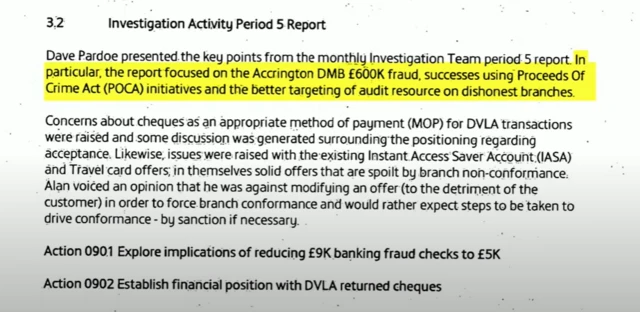Cook says he does not remember specificspublished at 11:08 BST 12 April 2024
 James Gregory
James Gregory
Reporting from the inquiry
An issue with inquiries of this nature is that the events, meetings and documentation being discussed is in some cases from almost 20 years ago.
Stevens is taking Cook through minutes of meetings which the managing director would have seen at the time, but often in his testimony this morning Cook has sought to claim he could not remember some of the specifics.
One such meeting, on 22 March 2006 - a matter of days after Cook was appointed to the role - discussed reported problems with the Horizon software.
But Cook says he does not "remember specifically" whether this was referring to software in the "testing phase or production".
He says he does not remember what he would have said at the time in relation to this being brought to his attention.


